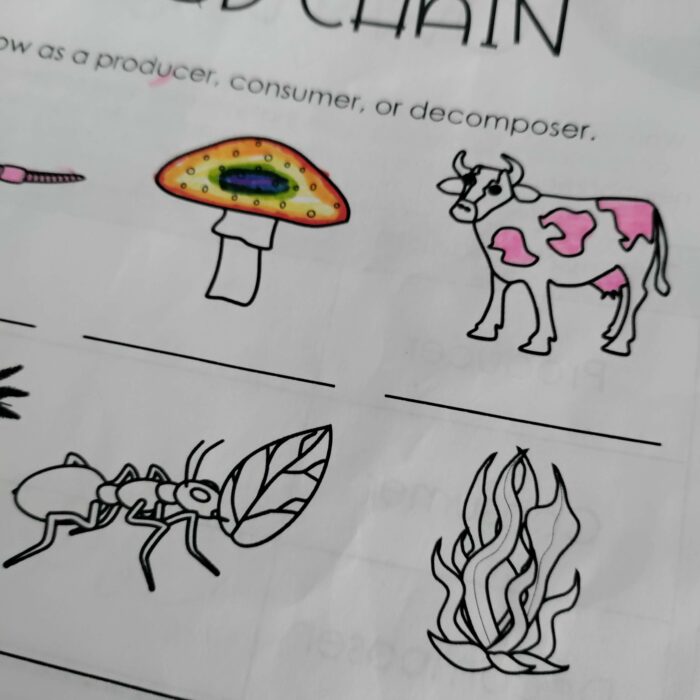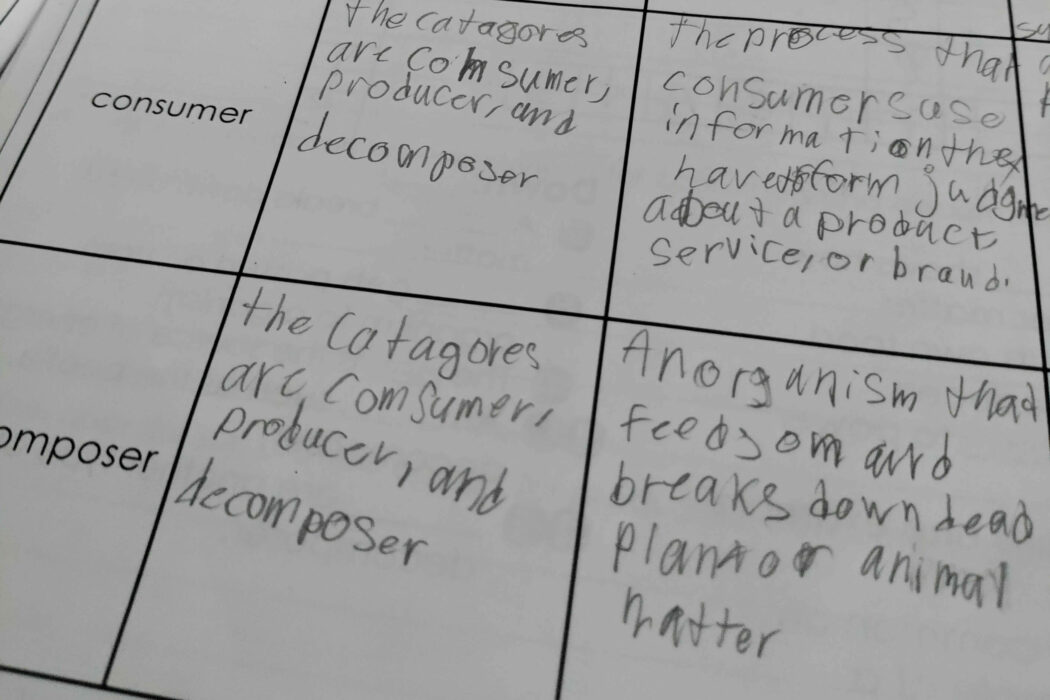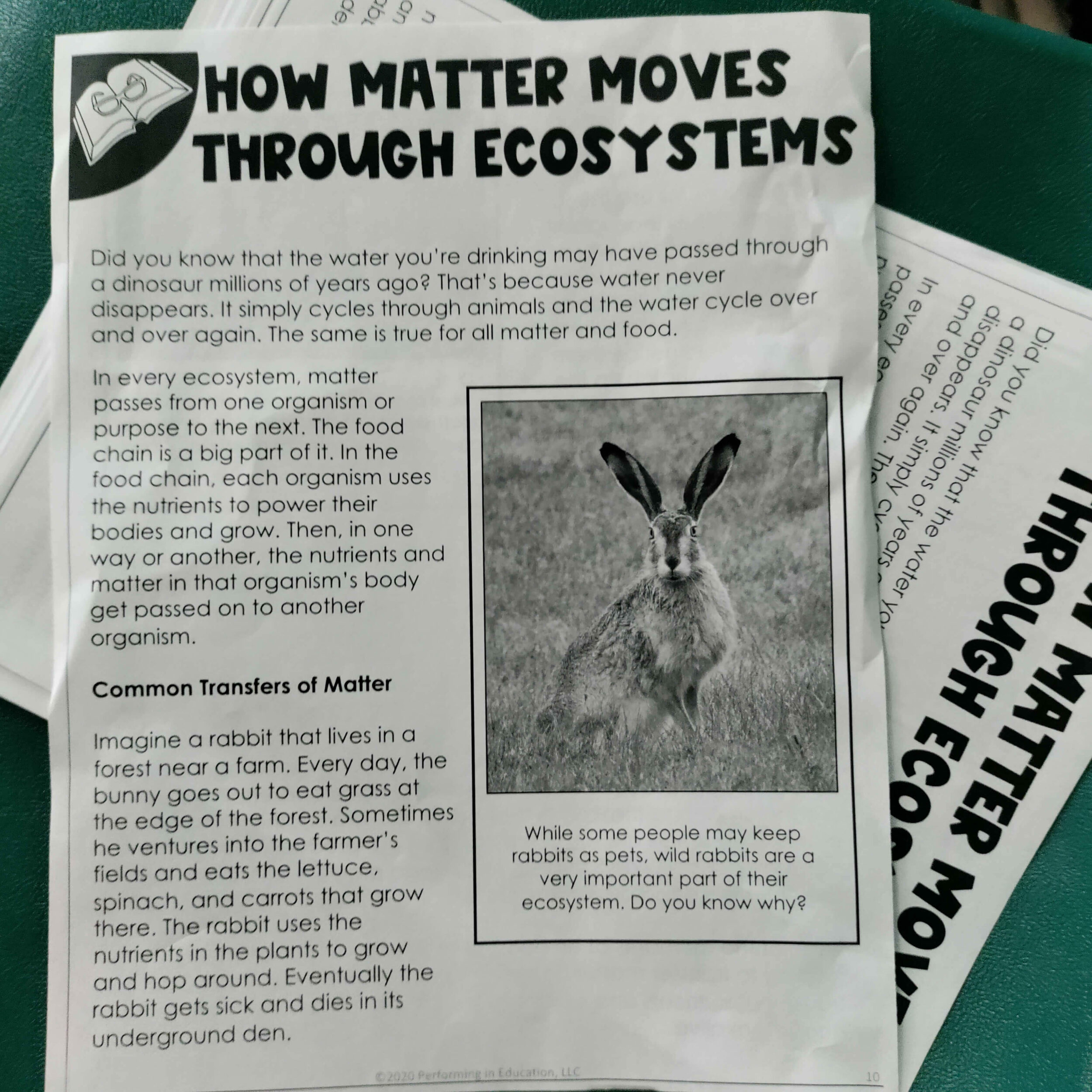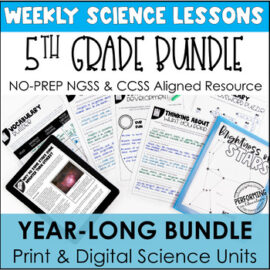Science vocabulary can often be a stumbling block for students when new words are quickly glossed over or rarely used again, however, explicit, cross-curricular instruction with multiple practice opportunities will have your students mastering essential science-related words for each unit of instruction.

Starting with an engaging science text is key to grabbing your students’ attention. Meaningful information with examples which students can relate to their everyday lives unlocks science standards in a clear, contextual way. High-level vocabulary should be interwoven into science readers to build connections to concepts as students read the materials.
But how can educators better support students in understanding–and absorbing–Tier 2 and Tier 3 science vocabulary once they’ve read? Multiple access points and repeated exposure.
Engaging Practice Opportunities
Packet work isn’t what it used to be! Science vocabulary and standards can be reinforced with word hunts, fun word puzzles, coloring activities, quick sort-and-labels, or making infographics and charts. Through repeated exposure in short bursts, students are immersed in essential science words without feeling fatigued or overwhelmed by dry assignments that feel out of reach. Student understanding of vocabulary is supported with opportunities to read, hear, say, and interact with new words in various ways.

Students can also master other essential skills such as finding in-text quotes/citations while completing a word hunt. Weekly Science Lessons, with included reading passages, ask students to find the science vocabulary word used in a sentence in the accompanying text, define the word on their own, and identify examples of the word. Each of these steps supports students in actively processing vocabulary and conceptualizing new terms. Other activities reinforce and highlight vocabulary terms through key science standards such as labeling, diagramming, and sorting data.
Low-Risk Writing Activities
Building writing stamina is at the back of many teacher’s minds.
One way to get students moving that pencil (or clicking away on the keyboard) is through a short answer response that feels low-risk. A week-long unit with repeated exposure to content and science vocabulary boosts student confidence in the subject matter. They know the terms and are ready to use them in their own writing to explain their thinking. Using their new vocabulary, students can respond to the essential question of the science unit in a writing assignment that is accessible and easily differentiated.
Students make meaningful connections to the content when tasked with creating a written response that incorporates essential science vocabulary while also using their own words. Crafting a few sentences or a couple of paragraphs with embedded vocabulary supports students in using high-level thinking and justifying reasoning through writing–cross-curricular skills that will serve them into upper grades and beyond.

Vocabulary Learning Extensions
Classroom walk and talks around the playground or community continue to solidify students’ conceptual understanding of vocabulary. Pointing out science terms used, such as “matter” or “producer,” while taking a quick jaunt helps children understand that science is all around us at all times. Even the cafeteria can be a great place to ask some thinking questions! Students of all ages will benefit from repeated exposure to their new vocabulary terms throughout the unit and beyond.
Thankfully, most elementary education science topics can be covered without the use of fancy equipment, labs, or other high-cost items. Discussion questions, outdoor activities, and exploration with common household products makes essential scientific learning reachable for both teachers and students.


